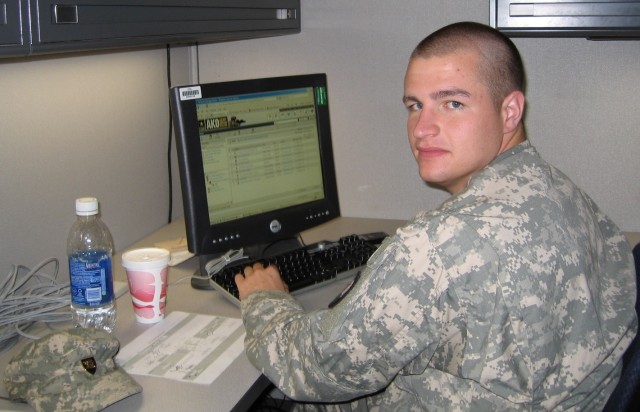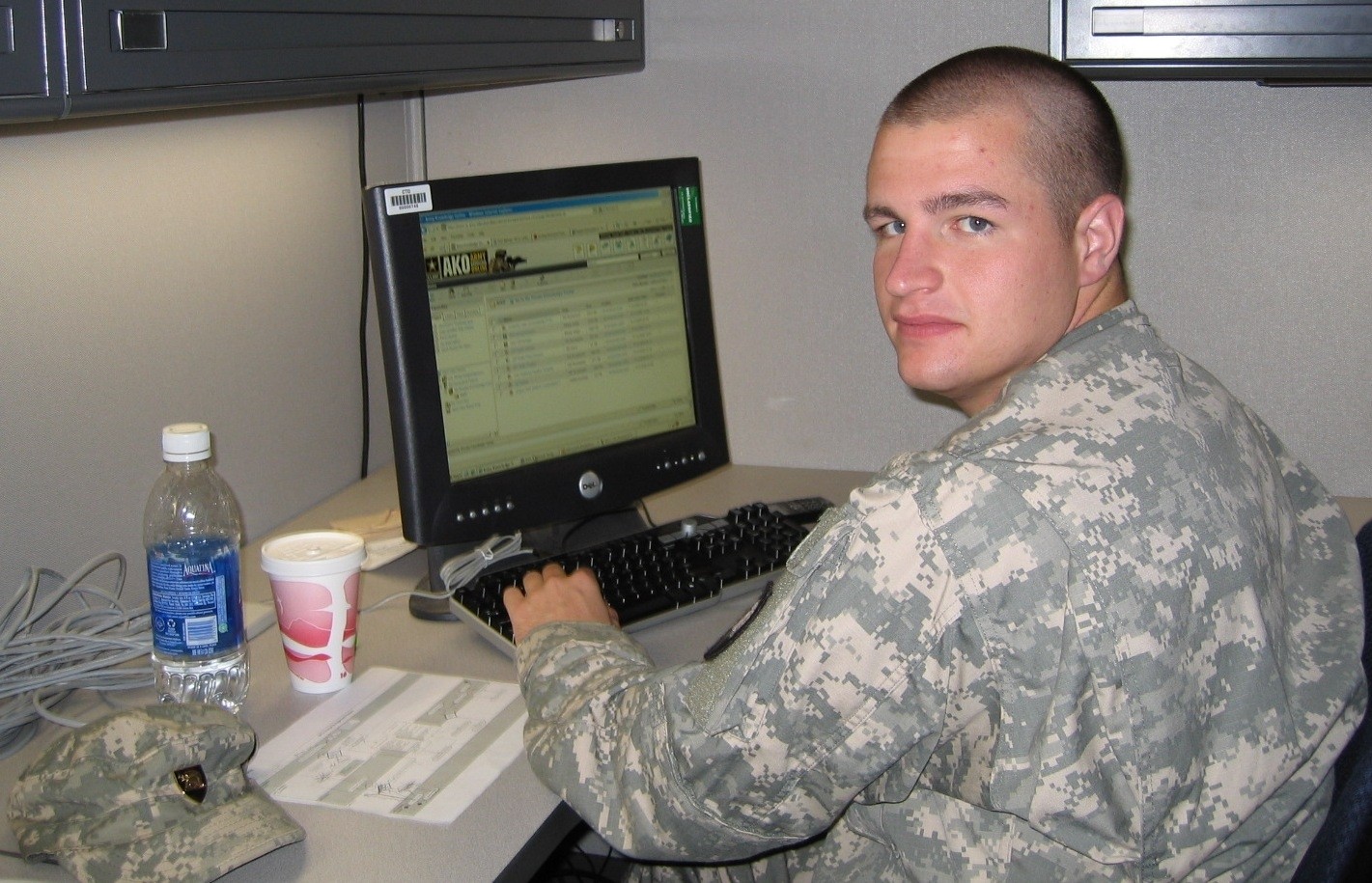FORT BELVOIR, Va. - At 7:30 in the morning, West Point Cadet Daniel James Smith was sitting at his computer at the Army Knowledge Online office inputting change-management requests into the business process management database.
Cadet Smith is an intern at the Army's knowledge-based learning organization. As the single point of entry into a robust and scalable knowledge management system, AKO is changing the way the Army does business and Smith is learning how to make that happen.
"Business process management is an effective program that can easily be implemented across the Army," Smith said. "BPM is the link between information technology and systems engineering, and it ensures that processes flow the way they should."
For the past three weeks, Smith has been learning the inner workings of AKO. This 21-year-old engineering management major from Utica, N.Y., will be a senior this fall at West Point.
As part of West Point's Advanced Individual Academic Training or AIAD, Smith, and other West Point cadets participate in the Training with Industry program. While some of his fellow cadets went to civilian businesses and organizations, Smith decided to go to AKO.
"I wanted to see how systems engineering is used in the real world and how Army uses it," Smith said. "I realize now how critical AKO is to the Army - two million users depend on its operations every day, and this organization does a great job of making sure things run smoothly."
Smith went on to discuss what he is learning at AKO. He mentioned being shown the data center, which houses AKO servers. He then went to a training class for the AKO portal, where he learned the basics of using AKO, and the resources available. Afterward, he was given advanced portal training, where he was shown some of the more intricate capabilities of the Web site.
"On day one I received a schedule, planned out down to the minute," Smith said. "I work on a project that is necessary, and at the same time I am shown basically every part of AKO."
He also mentioned that he attends weekly operations meetings, which allow him to see how each part of AKO interacts with the other, and the highlight of his internship was being able to meet the new project manager of AKO, Col. Earl Noble.
"Col. Noble gave me a personal tour of the Pentagon and I sat in on a Defense Knowledge Online board of director's meeting with him and my sponsor," Smith said.
"This is a great learning environment for our future leaders," said Noble. "AKO is changing the way the Army does business and hopefully Cadet Smith will take what he learns here and apply it when he returns to West Point as well as when he is commissioned into the Regular Army as a lieutenant."
Smith admitted that he was previously unfamiliar with business process management, but understands that it is very relevant to systems engineering.
"One of the reasons BPM is so powerful is that it is both prescriptive and descriptive - it models how a process should flow, and then ensures that it flows that way. A majority of systems engineering involves ensuring stakeholder's needs are met efficiently, in terms of both time and cost, and BPM is a physical tool that ensures this happens by guiding a process along the right path," said Smith.
Smith said that he was recently invited to a West Point alumni reception hosted by Senator Jack Reed. While there, he ran into the head of the West Point AIAD department and was asked if AKO should stay on the list of intern positions. He said, "Yes, it is definitely a keeper. The people at AKO are great to work with and it is a great learning experience."




Social Sharing